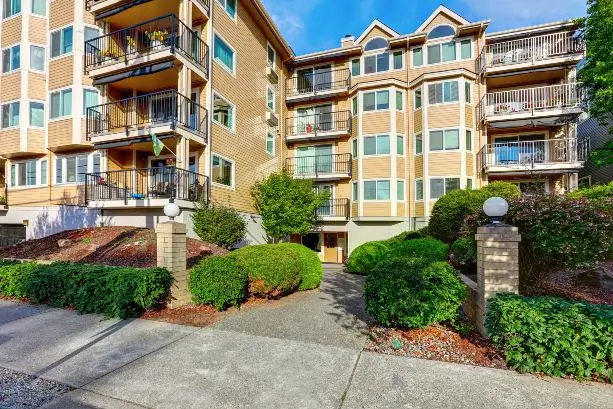
When you live in an apartment, understanding your plumbing system might not be at the top of your to-do list. But what happens when something goes wrong? Knowing how your apartment’s plumbing works is incredibly helpful when deciding whether to call for emergency drain cleaning or other plumbing services. Explore how apartment plumbing and drainage systems work to get you up to speed.
How Plumbing Works
There are two sides to any plumbing system. The freshwater system brings water into your apartment for showering, cooking, and cleaning. Then, the wastewater system is comprised of gravity-assisted pipes that carry used water out of the building. Here are the key components:
- The main water line delivers water to the entire building.
- The water meter keeps track of your water usage separate from your neighbors’ for billing purposes.
- A network of pipes transports water to individual apartments.
- Shutoff valves let you manage water flow. You might need to shut off the water during a plumbing emergency or repair.
- The water heater boosts the temperature of some of your incoming water for hot showers and other tasks.
- Fixtures (faucets, showerheads, toilets, etc.) and appliances (washing machine, dishwasher, ice maker, etc.) provide access points to your pipes.
- Drains funnel used water from fixtures and appliances to the sewer line.
- Traps are the bent section of pipe below your sinks and other fixtures. They perpetually hold water to prevent sewer gases from rising into your apartment.
- Vents let air into the sewer line to keep the water flowing.
- The sewer pipe leads out to the street, where it connects with the city’s sewer system.
How Apartment Plumbing Systems Work
While the plumbing components are largely the same in a single-family home and an apartment building, the system works a little differently.
For instance, multiple-dwelling units like duplexes and townhouses have plumbing systems resembling single-family homes. The only difference is the plumbing system branches out more to supply water to each unit. Here, hot and cold water lines ensure the water is at the right temperature whenever you turn on the tap.
In multi-story apartments, the challenge is getting water to reach every floor. Some use gravity-fed roof tanks, while others rely on booster pumps or hydro-pneumatic tanks to maintain pressure.
The Drainage System
Apartments, especially those in high-rise buildings, require a sophisticated underground drainage network. This system consists of various components, each playing its part to help wastewater exit the building efficiently. These include:
- Vertical stacks: Extending from the basement or ground floor to the roof, vertical stacks include waste stacks for clean water fixtures, soil stacks for toilets, and vent stacks that introduce airflow without moving water.
- Branch lines: Think of these as off-ramps from the vertical stacks. They connect each apartment unit to the main vertical stacks, ensuring that wastewater reaches the right place.
- Horizontal underground lines: These pipes run beneath the building, using gravity to transport wastewater to the local waste system. You can’t see them, but the quality of your underground lines affects how everything flows.
Depending on the building’s size and complexity, the drainage system might utilize a one-pipe or two-pipe design. In a one-pipe system, all waste travels together. In a more complex two-pipe system, liquid and solid waste move through separate channels. Larger buildings often benefit from the two-pipe system for efficiency and hygiene reasons.
Are Apartment Drains Connected?
With the labyrinth of pipes snaking through your apartment building, it’s common to wonder how your drains are connected to others. Be aware that while the drainage system is interconnected, most apartments have individual freshwater pipes catered to each unit. In some cases, particularly in smaller or older buildings, a few apartments might share a section of pipes. Even then, a maximum of just two or three units might be connected.
Do Plumbing Problems in One Unit Affect Other Apartments?
Yes, plumbing issues in one unit can often ripple to other apartments, especially in multi-story buildings with shared drainage. Here’s a look at some common issues and how they can spread:
- Toilet clogs: A blockage here can prevent wastewater from flowing properly, leading to messy overflows. If the clog is in a shared line, it might affect other units.
- Drain clogs: Accumulated grease or other debris can clog sink drains. These issues are usually isolated to one unit unless they occur in a shared section of the plumbing.
- Frozen pipes: In cold climates, pipes can freeze and burst, possibly affecting the entire building if the lines are interconnected without proper insulation.
- Water leaks: Leaks can cause damage within an individual unit. If not spotted and repaired quickly, the leak can affect surrounding units, especially if the affected apartment is on an upper floor.
- Weak water pressure: If this issue stems from the incoming water supply, the entire building could be affected. However, if local issues like clogged faucet aerators are to blame, the problem is typically confined to the individual unit.
How to Avoid Apartment Plumbing Issues
Follow these tips to keep your apartment’s plumbing in top shape:
- Address slow drains before they become full-fledged clogs.
- Monitor your water quality.
- Never flush anything besides toilet paper and human waste.
- Dispose of cooking grease in the trash, not down the kitchen sink.
- Use mesh screens to catch debris before it flows down the drain.
- Schedule routine plumbing checkups.
Why Choose Puget Sound Plumbing and Heating?
With over two decades of experience and a commitment to quality service, Puget Sound Plumbing and Heating can meet all your apartment plumbing needs. Our family-owned business prioritizes fair prices and has an emergency plumber on call 24/7. Our skilled, fully licensed team delivers unbeatable work and ensures a positive customer experience every time. If you’re facing a plumbing issue in your Seattle-area apartment, please call us at (206) 938-3219 or contact us online to schedule the services you need.


